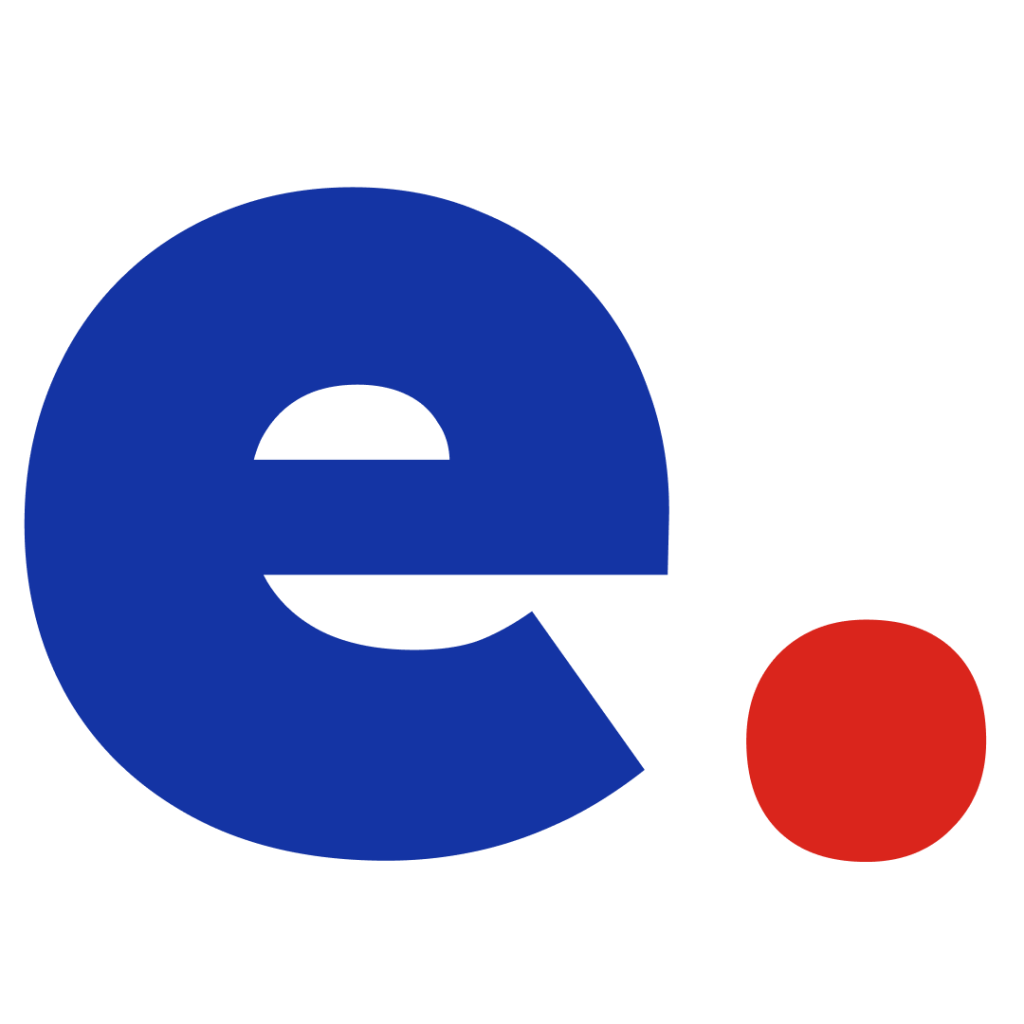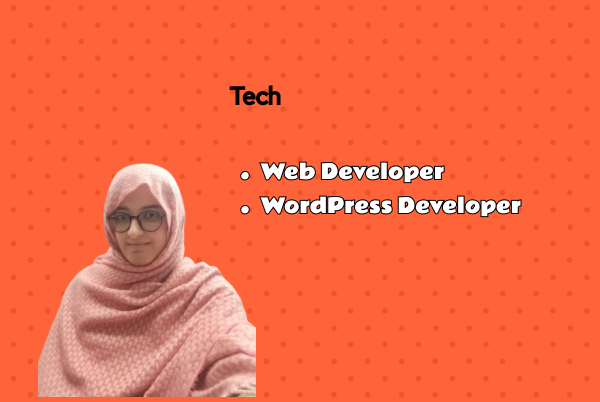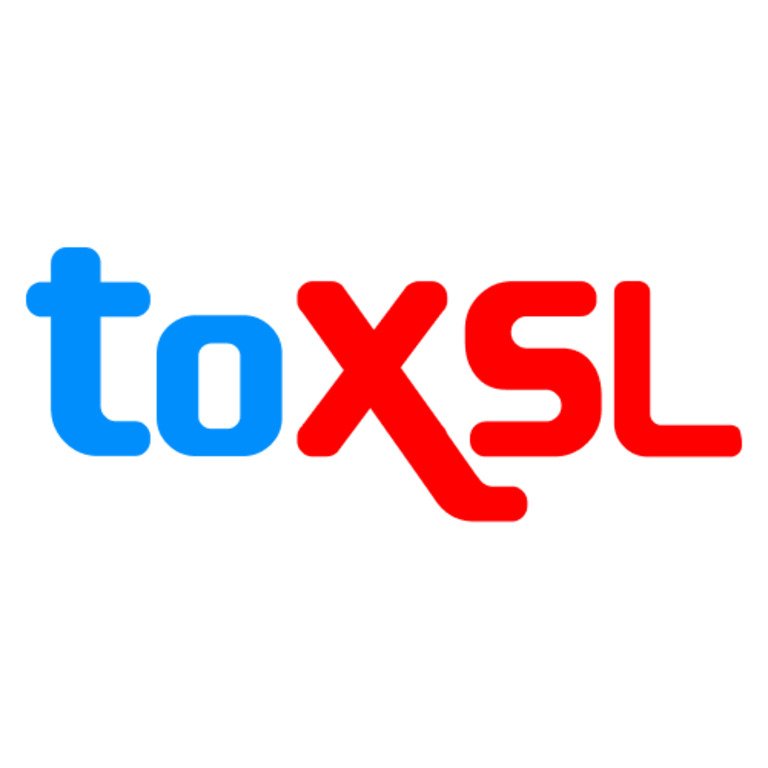Hire the Best Web Developers
Check out our experienced Web Developers who can meet your project needs.
1728 Web Developers available
|
Clients rate Flexable Web Developers 4.8/5 ⭐ (23 reviews)
Last updated: June 29, 2025

Sakthi K

Dharshan Kumar S

Abhijit Karmakar

Aashish Malhan

Rajesh Reddy Ramireddy

Tom

Yoki Rahmada Berlian

Tushar Moradiya

Akhtar Abbas

Gauri
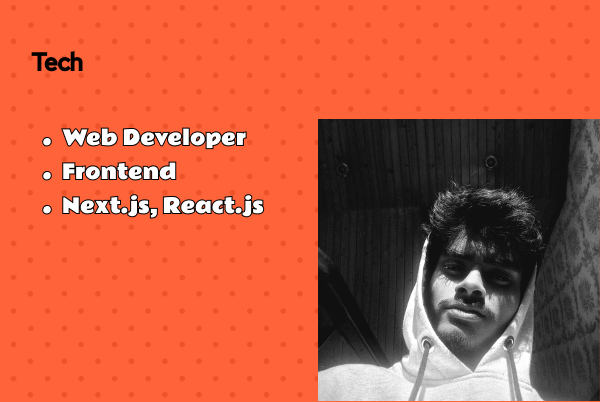
Sidhesh

Nilesh

Milap dave

Ramesh akkagari

Arshdeep

Siddharth Mantri
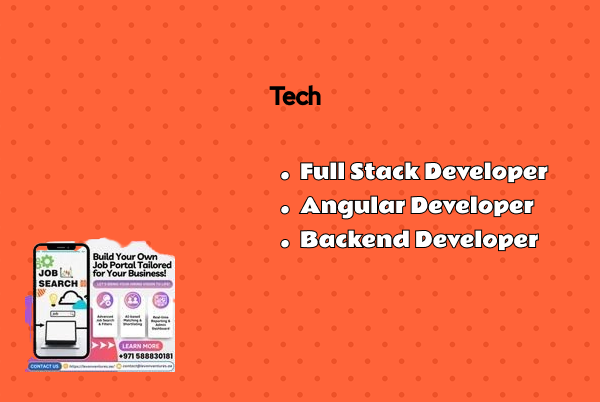
Naryanaswamy

Ahmad sohail

Raj

Abdul Nadeem Nihaal

Mrudula

Nihal Mishra

Meena

Ghulam Mohey-ud-din

Eduard Hoppman
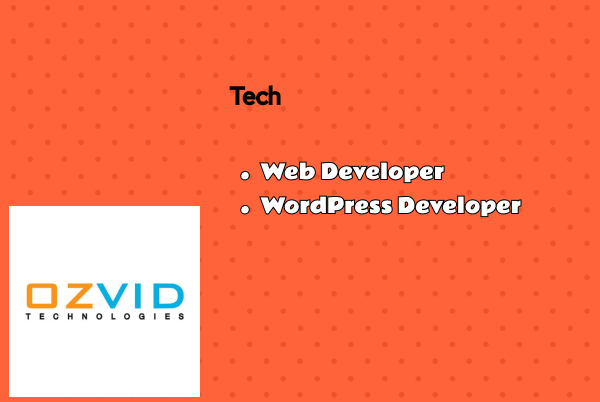
OZVID Technologies

Abdul Rehman Azam

Yusuf Ahmed

Suraj Kushwah

Akhil Vooradi

Allen Samuel

Jegan
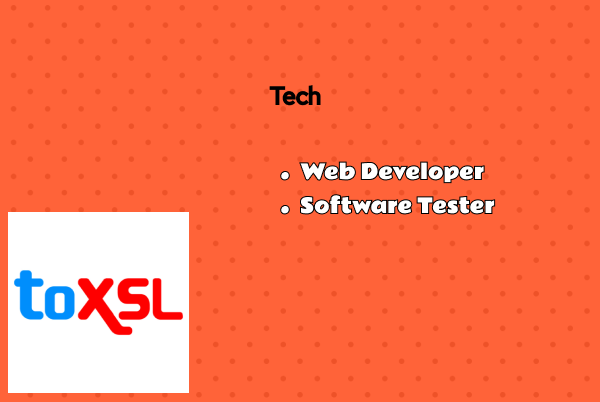
ToXSL Technologies

Arvinth

Divyam Gupta
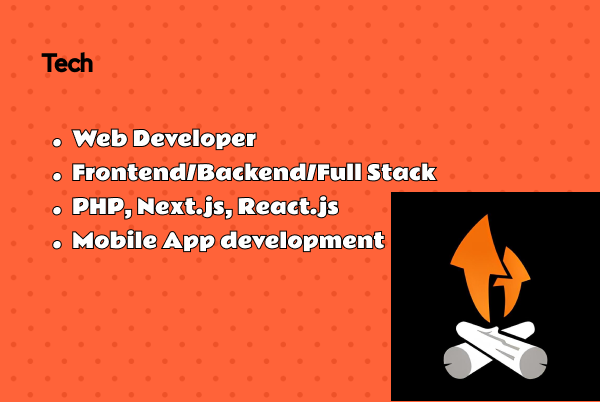
Sprig Stack

Yogesh S

Abinash R

T Rajiv Nair

Muhammad Usman Hussain

Khushman Kalsi

Raghavendra Rao

Prakash Shetty

Arjun Pawar

Santino Rios

Omir Parks

Hannah Goldberg

William Green

Zachary Adams

Ariella Friedman

Joseph Harris

Krish Desai

Dev Bhatt

Animesh Kalita

Amelia Clark

Sawyer Blais

Fatima Zamora

Karina Velasquez

Anil Kumar

Abhijit Debnath

Daniel Allen

Abok Lotha

Ashwini Karthik

Amarjeet Dhakad

Narayanappa

Biswajit Saha

Brielle Clark

Nabil Chowdhury

Citlali Jauregui

Isela Mondragon

Kyro Connors

Rocio Ayala

Nixon Barreto

Andre Whatley

Javion Robbins

Abung Naorem

Abing Dolo

Aching Wangsu

Bhargav Krishna

Amuba Thoudam

Apum Perme

Baljeet Ahlawat

Clarissa Garza

Isabella Lee

Orla Flynn

Isaiah Franklin

Esmeralda Lee

Ximena Salgado

Renji Ku

Abhay Kumar Mahto

Bhaskar Naidu

Dinesh Goud

Akshay Hegde

Jenny Tran

Ruben Molina

Rakshitha Prasad

Christine Choi

Zuri Freeman

Ciara Dunne

Leonel Benitez

Saoirse Delaney

Eldho Joseph

Akash Teja

Angousana Kangjam

Emely Lozoya

Eithan Ramires

Dior Castaneda

Camila Tovar

Kwame Prince

Rocio Garza

Madison Ellis

Adrian Delgado

Yesica De La Rosa

Amar Nath Singh

Anand Kishore Jha

Karina Davila

Matthew White

Isabella Fields

Naomi Walker

Anjali Menon

Anjali Gupta

Julissa Camarillo

David Rosen

Awa Jallow

Leif Brightwind

Rajarajeshwara Gowda

Amol Phatak

Arif Patel

Shiva Kumar

Kareem Watts

Noah Hoang

Jade Wheeler

Evan Yoon

Treyvon McGee

Marlene Alfaro

Kumaraswamy

Reese Knox

Aang Dorjee Bhutia

Adiel Nongkynrih

Tor Ice Whisper

Vijayan

Bryce Wells

Sofia Morgan

Anahi Carvajal

Zariah Parker

Chandran

Javon Romero

Londyn Brooks

Sreerag

Abhimanyu Kosariya

Amarendra Behera

Jairus Aolani

Gabriela Escobedo

Ravina Iyer

Nayeli Lopez

Rashawn Chaney

Owen Berger

Damien Grant

Aditya Dimri

Jonah Weiss

Linh Nguyen

Abong Tayeng

Akash Lohan

Ashutosh Rathi

Maika Bravo

Belen Santiago

Leah Rubin

Ibrahim Ebrahim

Malia Zavala

Arjun Iyer

Abhay Rajput

Achiphu Rengma

Dinesh Karthikeyan

Tyron Reaves

Ali Mohammed

Ariadne Malone

Ivy Lawrence

Byung Yoon

Young Kwon

Sanjay Mehta

Kiran Chauhan

Ajay Dahiya

Tessa Ford

Kwame Reynolds

Dean Flanery

Itzel Rivera

Rayan Mehta

Tatum Kojima

Saylor Wallace

Camila Barrios

Amar Kumar Oraon

Anand Sinha

Nooreen Idris

Dahlia Granillo

Meher Azhar

Malik Walker

Chithra Lakshmanan

Isha Kapoor

Jackson Li

Ajay Desai

Amit Chaturvedi

Ganesan Arivazhagan

Liana Reyes

Juliana Varela

Dante Silva

Damon Short Bull

Grayson Palmer

Abhinandan Thakur

Amrit Tamang

Anmol Rai

Akashdeep Rana

Ashok Pradhan

Anirban Neog

Amina Cruz

Truett Snow Claw

Siena Valdez

Miranda Chavez

Adrian Garza

Abel Fernandes

Anirban Bhattacharjee

Arif Shaikh

Tyree Clegg

Brooklyn Young

Sara Epstein

Levi Wright

Aditya Negi

Amar Nath Tanwar

Amitava Banerjee

Arvind Rathore

Leila Ayala

Sloane Barrett

Caleb Brooks

Tanner Jenkins

Aliyan Qureshi

Abhay Singh Rathore

Anil Kumar Reddy

Amar Singh Sisodia

Ashem Naobi

Bharat Dalal

Juniper Banks

Kareem Davis

Amelia Walker

Ada Ford

Abhishek Gowda

Hemanth Kumar

Fatima Lujan

Abhijeet Singh

Chandrika Pillai

Arvinder Singh

Itzel Galan

Belen Jimenez

Renata Pereira

Alexa Neal

Emiliano Torres

Isaac Bradford

Frida Huaman

Amarjit Tamang

Bineesh

Bhupen Gurung

Anand Prakash Verma

Sutton Barrett

Jose Smith

Lylah Greene

Arun Verma

Abhishek Thakre

Akash Patel

Amit Shah

Ananta Rath

Nikolai Granger

Debapriya Sanyal

Amarjeet Bisht

Manoj Kumar

Arindam Borah

Barishon Myrthong

Amal Hared

Genesis Castillo

Achyutananda Mishra

Ajay Debbarma

Amalendu Chakraborty

Amit Netam

Bailey Ward

Walker Chandler

Vijay Kumar

Elijah Katz

Zuleika Martinez

Ariana Fox

Amarjeet Saini

Amarjeet Tanwar

Anil Uniyal

Apam Komut

Leslie Hernandez

Dania Lozano

Marcel Thomas

Ivette Cruz

Kyan Rollins

Eiko Beltran

Aditya Reddy

Anil Kumar Goud

Basavaraj Naik

Akash Verma

Alina Wright

Noemi Llamas

Woo Han

Catalina Mercado

Anika Boyd

Ali Hussain

Aslam Parvez

Anong Riba

Angousana Khundrakpam

Wesley Boone

Amira Pena

Aravind Nayak

Jasleen Kaur

Layla Whitman

Aurora Neal

Jahlil Maddox

Alicia Gonzales

Amina Torres

Colton Bishop

Viviana Salinas

Zahra Said

Selena Riley

Carlos Stewart

Luciana Melgar

Bianca Perkins

Ford Gervais

Aniket Jadhav

Amara Lopez

Jahlil York

Abhijit Chatterjee

Adarsh Rajpurohit

Aftab Hussain

Ajay Rana

Aniket Choudhury

Bilmor Nongrum

Ashok Bhati

Samira Duarte

Tyquan Willis

Keenan Santiago

Nasir Hunt

Ibrahim Farid

Rashid Estes

Iliana Rojas

Harper Robinson

Gemma Price

Mia Watson

Kwame Shields

Rohan Mehta

Ravi Nayak

Abir Chakraborty

Anand Sonwani

Amaya Barraza

Dulce Luna

Dutton Singing Elk

Rahim Wooten

Ajay Teja

Emani Vargas

Anirudh Rajpurohit

Anand Karki

Mariah Castillo

Nehemiah Little Feather

Gabriela Vasquez

Bridget Sweeney

Kailea Arias

Anette Fuerte

Amaya Jenkins

Zoey James

Saniyah Melendez

Akhup Phom

Ayong Sangtam

Antonio Becerra

Zoya Rizvi

Ayaan Sheikh

Jalen White

Jabari Penn

Trevor Le

Xavier Brooks

Amy Zhang

Camila Luevano

Anand Rao

Athouba Wahengbam

Amjad Hussain

Chinglen Thokchom

Luis Martinez

Erica Fleming

Javier Luna

Zaniyah Esquivel

Maite Del Toro

Nasir Hurst

Abhay Kumar Jha

Bualchhuan Khiangte

Murali Nayaka

Naveen Kulkarni

Andrew Kaplan

Pradeep Swamy

Robert Smith

Gabriela Jenkins

James Anderson

Jacob Fox

Lily Kelly

Elias Rubin

Ajay Kumbhar

Akshay Shirodkar

Alok Pandey

Jaxon Dean

Brianna Rico

Lavanya

Caleb Benson

Donte Chester

Javion Simmons

Vidhya

Hendrix Solis

Davion Lester

Talia Cohen

Abner Mawrie

Ajmer Singh Rana

Ashish Lepcha

Gokul Raj

Keerthi

Rejith

Javonte Justice

Bennett Vienneau

Vincent Olson

Anette Herrera

Shibu

Maggie Tate

Hani Mahamed

Sumathi

Jade Richards

Murugan

Ajit Swain

Aniruddha Mohanty

Camila Molina

Ramya

Samuel Roth

Eleanor James

Kiara Martinez

Abhimanyu Rathore

Aditya Rajawat

Alok Purohit

Anand Bhati

Amit Bhatt

Samira Berrios

Tsunami Galvez

Langston Fire Rock

Zaylee Hoshino

Naomi Levine

Caiden Kim

Tanner Nakano

Hassan Conteh

Perla Morales

Anaya Santana

Esther Stein

Rocio Garza

Naya Fuji

Akhilesh Yadav

Chakrapani Reddy

Chiranjeevi Goud

Gopinath Venkatesan

Talia Warner

Layla Ford

Lilliana Taylor

Rosalie Douglas

Amira Thomas

Thalia Enriquez

Anirudh Gusain

Achouba Keisham

Anirudh Khanna

Akshay Bisht

Aravind Sreekumar

Adi Ngemu

Balwant Singh

Babulal Thokchom

Tyquan McMillan

Donte Holmes

Matteo Hayashi

Alisson Tello

Matias Garza

Holden Pratt

Juliana Lazo

Luana Cortez

Maxen Wu

Kwame Bonner

Wren Palmer

Abhinav Jha

Anvesh Kumar

Akhilesh Tudu

Anil Minz

Talon Thériault

Gavin Herrera

Nora Perry

Andre Allen

Landen Bechard

Arunachalam Rajan

Aditya Patel

Ajay Naik

Amar Mehta

Arjun Yadav

Layla Santiago

Miriam Weiss

Tiana Brooks

Amaya Gonzalez

Elijah Cross

Melanie Huerta

Yesica Tapia

Jaylene Haas

Aayush Bhujel

Bipul Lodh

Biakmuan Hauhnar

Ramesh Bhat

Frida Contreras

Sharath Pai

Shekar Nayak

Emery Abbott

Javier Torres

Viviana Escoto

Sutton Blake

Priya Powell

Kareem Bledsoe

Jude Wells

Abhijit Mahapatra

Suprasad Kotian

Ajinkya Gawande

Amitabh Saha

Rohan Kapoor

Rani Desai

Kylan Salas

Rahim Everett

Justice Neal

Itzel Chavez

Abhinav Thakur

Amar Chand

Tessa Palmer

Brisa Hernandez

Lylah Ford

Jaylen Flores

Ash Cold River

Nasteexo Farah

Arjun Shah

Indie Whitaker

Bimal Nath

Arjun Manikpuri

Yesica Godoy

Cody Bryant

Destinee Warren

Shawn Wells

Alondra Navarro

Dahlia Encinas

Amarendra Chowdary

Amina Hussain

Anirudh Mann

Akhu Riba

Arvind Meena

Ciara Horan

Iliana Mejia

Dario Araki

Yesenia Cazares

Harper Wallace

Abemo Lotha

Amitesh Kumar Verma

Gajendra Prasad

Anand Prasad

Bendang Imchen

Anshuman Thakur

Yamilex Benitez

Makayla Yazzie

Nyla Newton

Rashmi Deshpande

Heaven Clark

Jalen McBride

Legacy White

Isaiah Campbell

Danna Villalobos

Akham Noren

Alyssa Soto

Giselle Castillo

Catalina Lopez

Isadora Martins

Sabrina Holland

Aizik Tlau

Ang Tenzing Bhutia

Anil Kumar Munda

Abhishek Kumar

Luis Enrique Alvarado

Catalina Alfaro

Thorne Snowcliff

Isaac Feldman

Gideon Stein

Saylor Harmon

Callie Monroe

Aditya Tiwari

Ajay Yadav

Anil Solanki

Amitabha Nayak

Anahi Pacheco

Trang Pham

Gokul

Lilah Beasley

Leah Weiss

Debesh Pal

Animesh Gogoi

Arystar Kharjahrin

Anupam Choudhury

Babu Tamang

Selena Jackson

Santhosh

Gray White Sea

Barwaaqo Jama

Naomi Wells

Oscar Solano

Shyam

Isela Cazares

Aditya Mishra

Aditya Patnaik

Ashwini

Anil Chandrakar

Padmavathy

Anand Saxena

Hina Kamahao

Zamir Dobbins

Celina Mendoza

Raegan Ray

Kayla Dean

Kendrick Bennett

Ximena Nunez

Amaya Kaleialoha

Makenna Howell

Albin Kharbani

Ajang Wangsu

Banlum Marngar

Benedict Thabah

Arjun Tanwar

Itzel Vega

Clarissa Godoy

Edison White

Genesis Felix

Janessa Valdez

Abhishek Kashyap

Balaji Ramaswamy

Ajay Sahu

Chitra Krishnan

Alato Sema

Devin Carter

Celeste Jordan

Sahar Jamal

Julieta Arevalo

Amir Robinson

Thatcher Hahn

Mina Ellison

Ajayan Nair

Kamari Ellis

Amal Viswanath

Abungcha Ningthoujam

Anil Tomar

Balbir Singh

Selene Paredes

Yesica Herrera

Tatiana Cervantes

Langston DeJesus

Andre Faulkner

Nasim Abbott

Valery Barron

Mireya Sanchez

Aichhinga Tochhawng

Biakliana Khiangte

Arvind Choudary

Anil Prasad Yadav

Dayananda Prabhu

Dylan Nguyen

Minji Powell

Hazel Harrington

Lina Chen

Penelope Cruz

Aditya Wagh

Baldev Singh

Fathima Banu

Naomi Goldberg

Marina Melton

Houston Trujillo

Isabel Fernandes

Abhirup Bhuyan

Anand Singh Rathore

Chandan Mallick

Chhunthangliana Tlau

Anika Adams

Ruqiya Hersi

Tobias Spencer

Mateo Lopez

Axel Cunningham

Lennon Sawyer

Anaya Rubio

Alaya Craig

Aaron D’Souza

Abhijit Patil

Amulya Panda

Alani Chavez

Malia Moemoeā

Landry Kalāheo

Denver Shepard

Banteidor Lyngdoh

Anil Meena

Anil Chauhan

Anirudh Mehta

Shankarappa Hegde

Zayd Bass

Nina Douglas

Isabel Ward

Mohamed Qadir

Elsie Glenn

Kai Lone Wolf

Tyshawn Peoples

Juliana Montemayor

Irene Tran

Vidhya Lakshmi

Achiphu Angami

Kavitha Reddy

Akhilesh Kosariya

Crew Bear Rain

Elian Jaramillo

Alondra Rios

Mariana Ramirez

Itzel Romero

Noah Chandler

Serenity Calderon

Marisol Tinoco

Bridger Little Moon

Tuba Jaleel

Orion Firesky

Arun Kumar Phurailatpam

Babuchand Heisnam

Grace Thomas

Solina Uyeda

Ephraim Fast Eagle

Tamara Ross

Ajay Prasad Yadav

Amarendra Bhagat

Anirudh Desai

Anil Murmu

Andre Whitman

Nandini Sharma

Isla O’Donnell

Wyatt Anderson

Maeve Brennan

Fiona McAllister

Colton Red Elk

Biju Menon

Deepa Rajan

Alok Saxena

Amitabh Solanki

Daler Singh

Arun Kumar Yadav

Karina Moreno

Natalia Rocha

Jillian Drake

Mateo Rivera

Jett Rosario

Fatima Syed

Hailey Cooper

Ajeesh

Aditya Raj Singh

Akhilesh Prasad

Biju

Basant Chettri

Chhuanthanga Ralte

Nanjappa Gowda

Maddox Gauvin

Lowen Glacierveil

Nithin Iyengar

Prakash Patil

Frida Quintana

Ashish Yadav

William Thompson

Aaron Klein

Anil Pawar

Aman Srivastava

Mai Nguyen

Flor Gonzalez

Jordan Thai

Beckett Boyd

Wesley Moran

Dayanara Delarosa

Xander Wallace

Aria Ortega

Javion Callahan

Tessa Harmon

Shruti

Abhishek Dogra

Amar Subba

Vidhyashree

Albinus Shylla

Anmol Pradhan

Karthikeyan

Anbor Warjri

Dibyendu Karmakar

Andre Jenkins

Luna Freeman

Tobias Shah

Nasim Crews

Layla Bowen

Kaia Holmes

Ashok Nath

Anil Meena

Jasper Ali

Terrence Reed

Tyrell Johnson

Andre Boykin

Rosa Villarreal

Delaney Freeman

Saanvi Kapoor

Ava Morgan

Ajit Chauhan

Ajit Malik

Bahunlang Khongwir

Basan Mukhim

Anil Kaswan

Anirudh Mehra

Hannah Goldman

Rahim McAllister

Dev Bhatt

Krish Mehta

Aben Jamir

Anand Patel

Damodar Rao

Leyla Padilla

Cristian Ruiz

Lesly Zuniga

Wesley Santiago

Enrique Silva

Rosalinda Dominguez

Anahi Cedillo

Zayd Solis

Sarina Grant

Jayla Scott

Rania Bukhari

Citlali Cervantes

Aheibam Birjit

Miyah Espinoza

Ada Greene

Nina Vaughn

Brynn Douglas

Franklin Hennessy

Kabir Shah

Iniko Bravo

Balakrishna Poojary

Elias Windcrest

Adrian Nguyen

Anjali Kumar

Tania Navarro

Samara Cruz

Samson Fortin

Nayeli Alvarez

Isaiah Thomas

Mason Wu

Abhishek Tiwari

Abhinav Bhatt

Abhinav Reddy

Anand Reddy

Sarai Greene

Maximiliano Rivera

Eliana Katz

Indie Hood

Zander Li

Birendra Kundu

Biswajit Sanyal

Buangthanga Zomuana

Ranjith Kini

Anupam Koundal

C. Lalthazuala

Santhosh Shenoy

Knox Pellerin

Shreedhara Poojary

Tavon Daniels

Tatiana Almazan

Marco Morales

Sudhindra Alva

Abinash Chakraborty

Akash Deshpande

Agnelo Mascarenhas

Lina Iyer

Kianna Torres

Naomi Weiss

Jackson Thomas

Vivaan Patel

Haunani Yagi

Talia Rosenberg

Gabriel Anderson

Ravi Sinha

Ajay Choudhary

Agnimitra Sen

Bashanbor Laitflang

Amal Medhi

Batkupar Diengdoh

Anirban Basu

Bisweshwar Shylla

Anahi Vega

Hassan Graves

Sofia Murphy

Isela Lucero

Samiya Aweis

Luciana Mendez

Sarai Cordova

Declan Plourde

Marcus Cooper

Tyler Perreault

Ajit Rathore

Anupam Tripura

Akhupa Konyak

Claudia Serrano

Aditya Reddy

Nelly Betancourt

Garrett Dawson

Janay Fields

Dylan Grant

Ajay Rautela

Arun Prasad Naidu

Anok Lego

Asong Pansa

Rosalie Quintana

Gabriela Mejia

Taj Murphy

Koji Vega

Aine Delaney

Carla Espinoza

Dania Bravo

Belen Solis

Charlotte Harris

Noel Chavez

Javari Holmes

Ajay Reddy

Emery Price

Rosalyn Scott

Akshay Soren

Ayei Zeliang

Anandappa Nayaka

Anand Pratap Singh

Anjaneya Setty

Aravind Iyengar

Minji Foster

Lamont Hodge

Damien Hammond

Declan Kerr

Marina Valencia

Lisa Li

Julissa Tinoco

Tyrik Frazier

Sofia Delgado

Abhinav Awasthi

Amarpreet Singh

Akshaybhai Patel

Ankit Naidu

Anil Bhadoria

Chongtham Boy

Tatiana Rojas

Kara Wilkins

Clarisse Correia

Sabrina Silva

Leilani Coronado

Nathalia Lopez

Flynn Rea

Ajay Kumar Soren

Chawngsanga Tochhawng

Chawngthansanga Hauhnar

Chandrasekharan

Anupam Choudhary

Deepu

Frida Naranjo

Rahim Bynum

Citlali Segura

Prasanna Bhat

Omari Reaves

Hunter Cormier

Abhinav Mishra

Abhishek Mehta

Rajendra Setty

Akash Verma

Alok Barik

Aarthi

Ryder Zhao

Iris Walters

Nixon Palomares

Saravanan

Alice Tate

Skyler Vaughn

Graham Elliott

Alina Duarte

Chinmoy Lahiri

Ajoy Sarma

Akash Sood

Anup Chettri

Aniruddha Neog

Kendrick Nguyen

Rajendran

Nova Fields

Cataleya Zamora

Ivy Rice

Geetha

Gianna Alanis

Krishna Kumar

Rina Stewart

Malik Flores

Yesica Zavala

Abhirup Saha

Abhay Chouhan

Sudheesh

Ajit Lodhi

Akhtar Ali

Anup Reang

Aaron Silver

Allison Barnes

Fatima Llamas

Kritika Mehta

André Fontenot

Jamila Shaikh

Abhishek Dahiya

Akhilesh Pundir

Belen Castillo

Karina Zepeda

Talia Weiss

Yesenia Sepulveda

Noemi Lopez

Ahmir Baylor

Tavita Isobe

Suleiman Fofana

Arun Kumar

Amar Nath Sinha

Anand Jain

Farzana Banu

Coraline Pierce

Yamilex Zepeda

Edison Davila

Aboobacker Siddique

Tyson Ford

Imani Lewis

Luciana Macias

Liora Goodman

Omar Malik

Abhimanyu Malik

Amandeep Singh

Abang Tayeng

Akham Shitaljit

Arjun Mahra

Apang Dolo

Arun Bomjen

Zaire Harada

Itzeli Moreno

Kahea Alvarez

Brynlee Hart

Persephone Correia

Finn Douglas

Ajith Rai

Chawnghminga Hnamte

Ashok Naidu

Chidananda Alva

Aaron Reyes

Aisha Patel

Arlet Ramirez

Yesica Najera

Emma Morgan

Nasir Hobbs

Salma Rivera

Daxton Caron

Adarsh Pandey

Dhanushkodi Ramasamy

Elango Thevar

Ajith Naidu

Akash Chowdary

Akshay Joshi

Balwinder Singh

Amey Modak

Anand Paranjape

Lena Wu

Luna Chandler

Camila Mendes

Jamari Two Lance

Stella Boone

Emmett Ford

Zola Benson

Paxton Holmes

Ruth Feldman

Selah Robbins

Barliana Renthlei

Amitabh Rajbongshi

Amarjeet Mehta

Bhakta Bahadur Gurung

Jayden Howard

Raul Aceves

Alyssa Mojica

Charlotte Wilson

Santiago Chavez

Eliot Lopez

Millie Newton

Camila Avalos

Ajoy Mog

Akhand Mohanty

Alok Pradhan

Alex Pereira

Arindam Nath

Grecia Rosas

Paloma Villanueva

Anaya De La Rosa

Yesica Monroy

Lucia Fajardo

Neel Iyer

Luciana Aguayo

Aiborlang Kharshiing

Abner Rapsang

Alok Ghosh

Anowar Rahman

Jose James

Camilla Martinez

Avi Rivera

Tatiana Bonilla

Prema Desai

Ahoshe Sema

Amarjeet Toppo

Divya Shenoy

Ankit Dhruw

Anung Phom

Levi Morgan

Tyree Ruffin

Arely Cortinas

Kendra Tate

Liam Parker

Nallely Coronado

Fatima Malik

Ajit Singh Chauhan

Alok Bisht

Ashok Gehlot

Atang Basar

Yasmin Nakata

Anika Shah

Ella Barnes

Zuri Vaughn

Penelope Tate

Jahlil Allen

Skylar Robinson

Arden Hinata

Adarsh Tudu

Layla Anand

Fernando Cordero

Jesus Arevalo

Hector Mendoza

Esme Lozano

Emery Fields

Abungcha Ngangbam

Akhtar Ali

Chandanpreet Singh

Arjun Purohit

Marina Rosario

Montrell Hamilton

Santiago Alvarez

Giselle Chavez

Paloma Mendoza

Ajit Narayan Tiwari

C. Lalhmingliana

Ashim Subba

Baiju

Nagaraju Urs

Marisol Balderas

Narayana Murthy

Millie Wells

John Miller

Ethan Harper

Maren Vaughn

Ankur Singh

Oakley Grant

Darius Turner

Clarissa Valle

Abhinash Pattanayak

Daniel Moore

Bhargav Joshi

Crosby Marin

Martin Pham

Julieta Reyes

Melanie Urbina

Pooja Rani

Hannah Goldberg

Benjamin Park

Ajay Kumar

Raveendran

Anil Guleria

Sandeep

Alyssa Bravo

Dania Villa

Rajeswari

Millie Boone

Rafael Arce

Lincoln Bechard

Suryaprakash

Akashdeep Manikpuri

Akash Das

Aniruddh Yadu

Cortez White

Alondra Chavez

Krew Nahele

Charlotte Foster

Nathan Rubin

Jayce Kili

Celeste Hernandez

Amung Riba

Apang Lego

Isela Correa

Anvit Oberoi

Brisa Coronado

Reid Spotted Horse

Balaji Rao

Akhup Konyak

Eswaran Subramaniam

Anirudh Pathak

Atsali Phom

Ronin Clear Sky

Edison Reeves

Seung Lim

Tavion Stokes

Ford Beltran

Anahi Herrera

Anoop Menon

Abo Taba

Ashok Dhanda

Sebastian Torres

Ilse Hinojosa

Clark Kavanagh

Enzo Rojas

Brenda Fernandes

Colter Big Dog

Abhilash Reddy

Abhishek Kumar Sinha

Akhil Goud

Akash Pratap Singh

Bhanu Prakash

Yaretzi Torres

Itzel Ponce

Tyshawn Randall

Kai Lin

Sofia Allen

Albert Wong

Ritika Singh

Noemi Lopez

Alexis Chen

Naomi Howard

Anmolpreet Singh

Amarendra Rao

Anand Bhardwaj

Reina Bonilla

Landon Scott

Harper Vaughn

Tariq Chapman

Nasim Hodge

Ximena Meza

Hazel Boyd

Catalina Camarillo

Jace Lowe

Yasmin Farooq

Bankim Roy

Aizik Lalbiakthanga

Balram Subba

Arjun Dev Bhardwaj

Luciano Patel

Luis Rivera

Dangelo Shah

Pablo Pizarro

Faduma Mahdi

Knox River Snow

Alejandro Bencomo

Sudheendra Prabhu

Abhijit Debnath

Tatiana Rice

Juan Delgado

Abhijeet Desai

Adriel Rodrigues

Amol Kulkarni

Animesh Debbarma

Neha Reddy

Eli Drayton

Shaan Sharma

Hannah Ross

Ahmir Nash

Ethan Miller

Omari Santiago

Venkatesh Gowda

Arindam Deka

Trevor Cyr

Manjunath Bhat

Alexander Harris

Michael Lewis

Siddharth Bryant

Ahmir Gamble

Dimitri Gonzales

Yusuf Malik

Alessia Martinez

Abhay Kashyap

Abhishek Tomar

Akbar Ali

Anand Khandelwal

Azhoto Sumi

Blake Adams

Zephyr Donaldson

Maliha Siddiq

Omari Calle

Selena Chavez

Akhil Naidu

Abhishek Nautiyal

Camille Brooks

Ajit Nongmaithem

Amrit Kandpal

Ashish Sehrawat

Liliana Cordero

Nasim Boone

Selah Carter

Brenda Valdez

Chandra Shekar Rao

Eknath Reddy

Pooja Hegde

Nova Wallace

Soumya Iyer

Damian Bravo

Priya Patel

Amarnath Chowdary

Amar Bahadur Singh

Gopikrishnan Nair

Thatcher Rock

Rahim Cain

Zuleika Navarro

Ace Muniz

Madden Figueroa

Biakchhunga Hnamte

Amit Sharma

Juliana Cordova

Tucker Violette

Mia Carpenter

Jayceon Lyons

Harper Riley

Ruben Aguirre

Deepak Kumar

Camila Villalpando

Raghunath Hegde

Evelyn Burns

Alpesh Desai

Arvind Trivedi

Aniruddha Khedkar

Makai Hurley

Isidora Serrano

Juliana Casas

Anh Do

Andre Barkley

Layton Jaramillo

Naomi Levine

Zahira Medina

Hope Zimmerman

Tyron Givens

Dakari Gamez

Bodhi Sharp

Aadarsh Rai

Abhinaya

Quentin Begin

Raul Kim

Oakley Palmer

Spencer Robichaud

Onyx Rock Glacier

Santiago Davidson

Ruby Price

Eliana Cooper

Amarjeet Thakur

Arjun Debnath

Amulya Samal

Ashwin Rathore

Sathya

Quentin Foster

Priya Sharma

Meera Bhatt

Enzo Nguyen

Aarohi Desai

Mele Fukumoto

Olivia Knox

Aadesh Sehrawat

Aarav Patel

Jahlil Spears

Yusuf Bah

Dulce Jimenez

Omari Bright

Ruth Bernstein

Akokla Pongen

Anil Banjare

Omari Lewis

Nasir Johnson

Anil Kumar

Amit Sangwan

Ajum Pertin

Amarjit Phurailatpam

Balwan Rathi

Colton Benson

Kylen Broken Feather

Ryland Teixeira

Cristian Navarro

Decker Fast Lance

Zane Carroll

Lawrence Broderick

Aditya Hembram

Ajit Kumar Singh

Bualchhunga Pachuau

Amarendra Nath Pandey

Chhunthanga Ralte

Bala Krishna

Aniket Kumar Verma

Julieta Villapando

Leo Huang

Lucia Campbell

Rosalinda Lira

Jasper Icemeadow

Blake Williams

Nimco Dirie

Evan Chen

Sanya Desai

Scarlett Brooks

Bianca Guevara

Divya Verma

Camila Pantoja

Kendra Mehta

Amritpal Singh

Akshay Gupta

Amarjeet Yadav

Amar Jagtap

Aniket Solanki

Charanjit Singh

Anirudh Teja

Callum Cuevas

Aniyah Johnson

Trevon Daniels

Talia Rubin

Aria Bell

Ajeet Kumar Negi

Alok Saikia

Bawihchhuan Chhakchhuak

Arun Chettri

Sathyananda Hegde

Isela Olivarez

Terrance Munoz

Teagan Lowe

Daniella Burns

Litzy Menchaca

Somanatha Rai

Callan Plourde

Subrahmanya Bhandary

Jalen Kelly

Sunil Adiga

Amarendra Jena

Nakoa Eleneki

Kyree Ka‘ahumanu

Claribel Solis

Maite Aybar

Eamon Vargas

Miriam Katz

Paige Miller

Koen Olomana

Lauren Adams

Anika Rivera

Abhay Singh Shekhawat

Abhijit Borthakur

Akshay Sharma

Trevon Ingram

Srinivasa Murthy

Harish Kumar

Hodan Abdul

Evelyn Hall

Arindam Dey

Alongchang Sangtam

Shalini Joshi

Anirudh Gond

Josue Ramirez

Grayson James

Tameka Holmes

Brady Steele

Aiden Ray

Amit Pundir

Arvind Hooda

Bhairav Singh

Esme Bell

Tobias Garcia

Trace Whirlwind Soldier

Peyton Brooks

Abhinav Kumar Singh

Achyutanand Jha

Aditya Urs

Ajmal Ansari

Amar Shankar Tiwari

Andre Thompson

Jenson Ouellet

Bhavana R

Akhil Chandran

Priya Allen

Tara Benali

Tanner Whitman

Carmen Diaz

Kori Reed

Abhijat Mehta

Angad Singh

Faisal Rahman

Ashangbam Boren

Kylen Huerta

Fernanda Lima

Perla Cruz

Jamir Anaya

Dariel Yellow Robe

Melody Bruce

Marco Chavez

Abhishek Mahto

Alok Ranjan Mishra

Pedro Rico

Hudson Pinette

Cherise Boateng

Purushottam Urs

Charles Johnson

Andre Anderson

Liliana Olvera

Ajit Panda

Akshay Behera

Elisa McCoy

Dulce Coronel

Theo Morgan

Tobias Kim

Hana Shahid

Ajeet Thakur

Debjit Saha

Rajalakshmi

Ranjith

Dipak Halder

Bahunlang Lapang

Renjith

Aniruddh Parmar

Scarlett Lowe

Marco Duran

Layla Lira

Sathyan

Ivy Chandler

Trevon Mathis

Eliza Boyd

Siena Frost

Marquis Moore

Catalina Barrera

Alicia Turner

Shihab

Selvi

Arpit Kosariya

Sawyer Benson

Samira Abdi

Weston Burke

Maya Boudreaux

Makayla Keaka

Tobias Cohen

Anthony Marak

Abo Monpa

Amar Karki

Anu Dirchi

Bindo Swer

Tatiana Rivera

Isidora Barraza

Ismael Alhassan

Vivaan Sharma

Rohan Kapoor

Shaan Desai

Miriam Adler

Aditya Chandrakar

Aditya Dubey

Ajenba Ao

Amar Singh Rathore

Anil Bhuria

Brooks Redhawk

Zamir Hinton

Tatiana Beltran

Chance Wounded Knee

Aakashdeep Singh

Abhijeet Rawat

Aman Negi

Ankit Dhasmana

Arjun Hooda

Baljeet Singh

Ashok Pundir

Abril Figueroa

Alina Rueda

Jace Foster

Miles Finnegan

Adarsh Thakur

Ananth Shetty

Anand Kishore Jha

Bhaskar Acharya

C. Laldina

Darpuii Hauhnar

Jayden Richardson

Kavita Reddy

Meera Joshi

Bo Glacierlight

Lucas Tran

Abhay Kothari

Arshdeep Singh

Akash Thombre

Baljinder Singh

Anupam Saxena

Anup Shah

Amelia Scott

Finnegan Blackbird

Montel Rhodes

Sophie Levine

Kiana Watkins

Amaya Lewis

Zamir Dunbar

Ajay Choudhury

Debabrata Ghoshal

Zephyr Night Wind

Camryn Harper

Tobias Tran

Zahra Awil

Amara Jacobo

Anil Naik

Tatiana Tirado

Meleani Tsukamoto

Leah Stein

Cullen Goodwin

Aditya Bhattacharya

Akash Choudhury

Rhys White Owl

Arun Kumar

Ethan Walker

Adarsh Bhadoria

Ajay Singh Sisodia

Ashish Reang

Monique Jenkins

Belen Guardado

Trent Baptiste

Ethan Foster

Juliana Dimas

Abhay Dagar

Ajmer Poonia

Achouba Keisham

Anil Gusain

Eliza Boyd

Rosalie Nash

Freya Carroll

Lamont Knox

Joy Evans

Achila Pongen

Bunglang Konyak

Alondra Fierro

Kinsley Blake

Grace Park

Vivian Flores

Camila Adams

Niamh Connolly

Cesar Varela

Aditya Pandey

Abhishek Reddy

Alpeshbhai Trivedi

Bhupinder Singh

Anand Chauhan

Aravind Reddy

Bhavesh Vaghela

Ariyan Spotted Horse

Cortez Shaw

Tara Bishop

Selena Juarez

Abhishek Rai

Anand Pradhan

Anoop

Akash Oraon

Mohan Rao

Amarjeet Thakur

Jacob Goldberg

Jayden Wright

Alyssa Bahena

Samuel Spencer

Ajoy Das

Anil Kumar Jatav

Isaac Han

Soren Dixon

Martha Llamas

Amaljyoti Dutta

Diptanshu Chaki

Samanta Vela

Sarath

Jose Hughes

Ava Nelson

Sreekumar

Animesh Mog

Sridhar

Sundar

Vinoth

Lucia Ortiz

Nithya

Rama Krishnan

Jacob Stein

Ankit Choudhary

Zaire Hawk Feather

Musa Diallo

Ahmir Whitley

Mireya Villareal

Karina Armenta

Hyun Oh

Deacon Bearclaw

Arvind Malhotra

Wesley Fitzgerald

Remy Vaughn

Ellis O’Rourke

Aarav Patel

Yesenia Galvan

Alejandro Ramirez

Rafael Green

Zahara Ali

Tristan Hayes

Clarissa Jimenez

Nora Fields

Zaid Velazquez

Leah Bernstein

Bharat Sardar

Ankur Basumatary

Reyna Paredes

Lane Fortin

Darius Green

Achyuta Nayak

Adwaita Kar
How to Hire Web Developers and Manage Your Projects on Flexable

Post your requirement, and we’ll reach out to you within 2 hours

Collaborate directly with a dedicated account manager

Get 100% results that match your goals





Trusted by 50+ Leading Brands and Startups
Explore More Web Developers by category
Explore More Web Developers by location
Web Developers in Bangalore
Web Developers in Chennai
Web Developers in Mysore
Web Developers in Mangalore
Web Developers in Trivandrum
Web Developers in Mumbai
Web Developers in Delhi
Web Developers in Kolkata
Web Developers in Hyderabad
Web Developers in Pune
Web Developers in Ahmedabad
Web Developers in New York City
Web Developers in Los Angeles
Web Developers in Chicago
Web Developers in Washington
Web Developers in San Francisco
Web Developers in India
Web Developers in United States
AI Web Developers in India
AI Web Developers in United States
Web Developers hiring guide
What do Web Developers do? +
Why should I hire Web Developers for my project? +
How can I find the right Web Developers for my business? +
How do I create a job post for hiring Web Developers? +
What services do Web Developers typically offer? +
What key questions should I ask Web Developers before hiring? +
Frequently asked questions
How can I assess a Web Developers’s expertise before hiring on Flexable? +
You can assess a Web Developers’s expertise by reviewing their portfolio, client feedback, and relevant experience to ensure they meet your project needs.
Can I find specialized Web Developers on Flexable, such as eCommerce, WordPress experts? +
Yes, Flexable has experienced Web Developers specializing in eCommerce, WordPress experts. You can filter candidates based on their skills, experience, and past work.
Does Flexable offer support if I face issues with a hired Web Developers? +
Yes, Flexable offers support to help resolve any issues you may face with a hired Web Developers.
What should I consider when reviewing a Web Developers portfolio on Flexable? +
When reviewing a Web Developers portfolio on Flexable, consider their past projects, skills, experience, client feedback, and whether their work aligns with your project requirements.
How can I quickly hire Web Developers on Flexable? +
You can hire Web Developers on Flexable within 6 hours by browsing profiles, selecting a developer, and sending a request.
